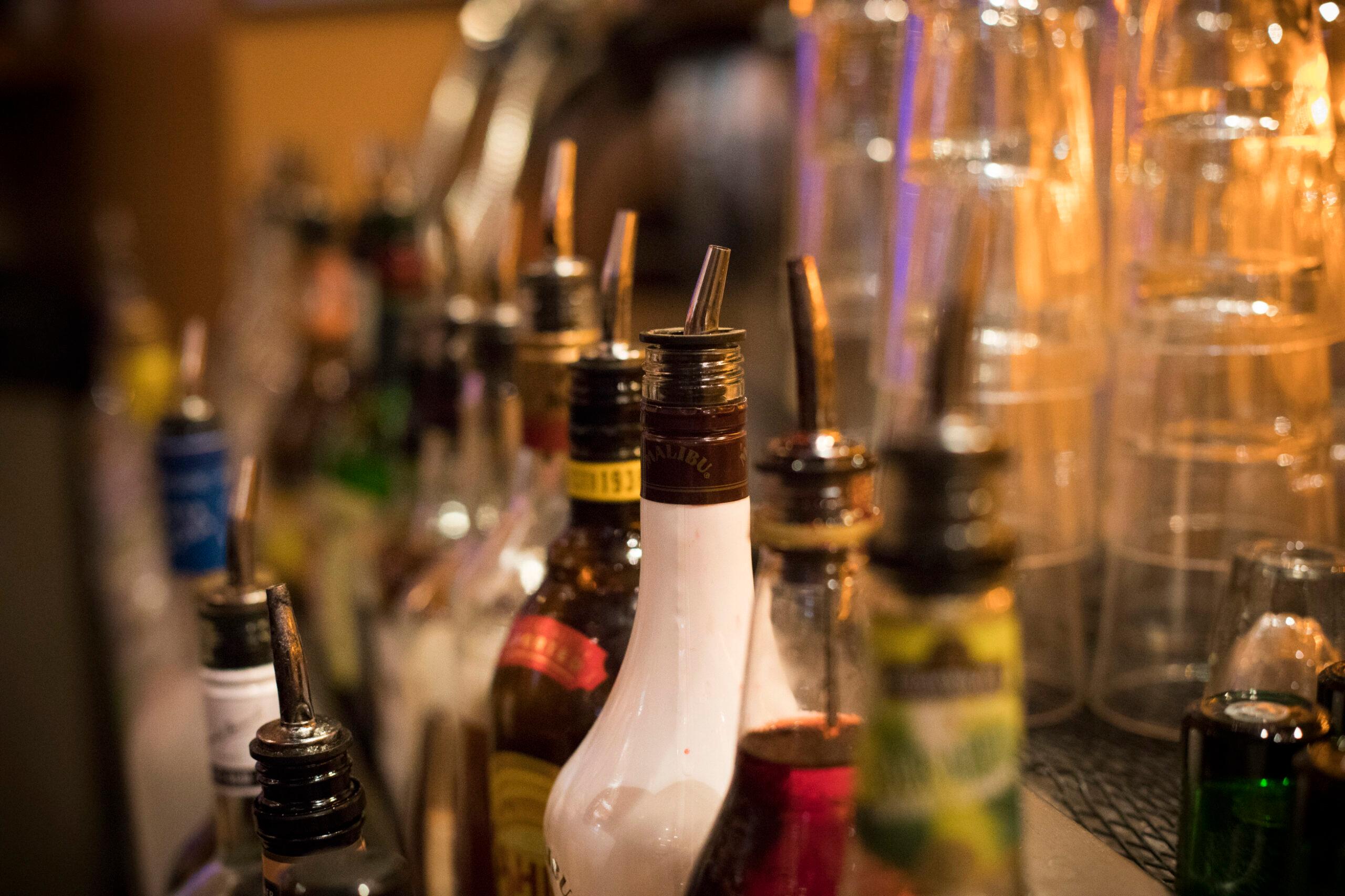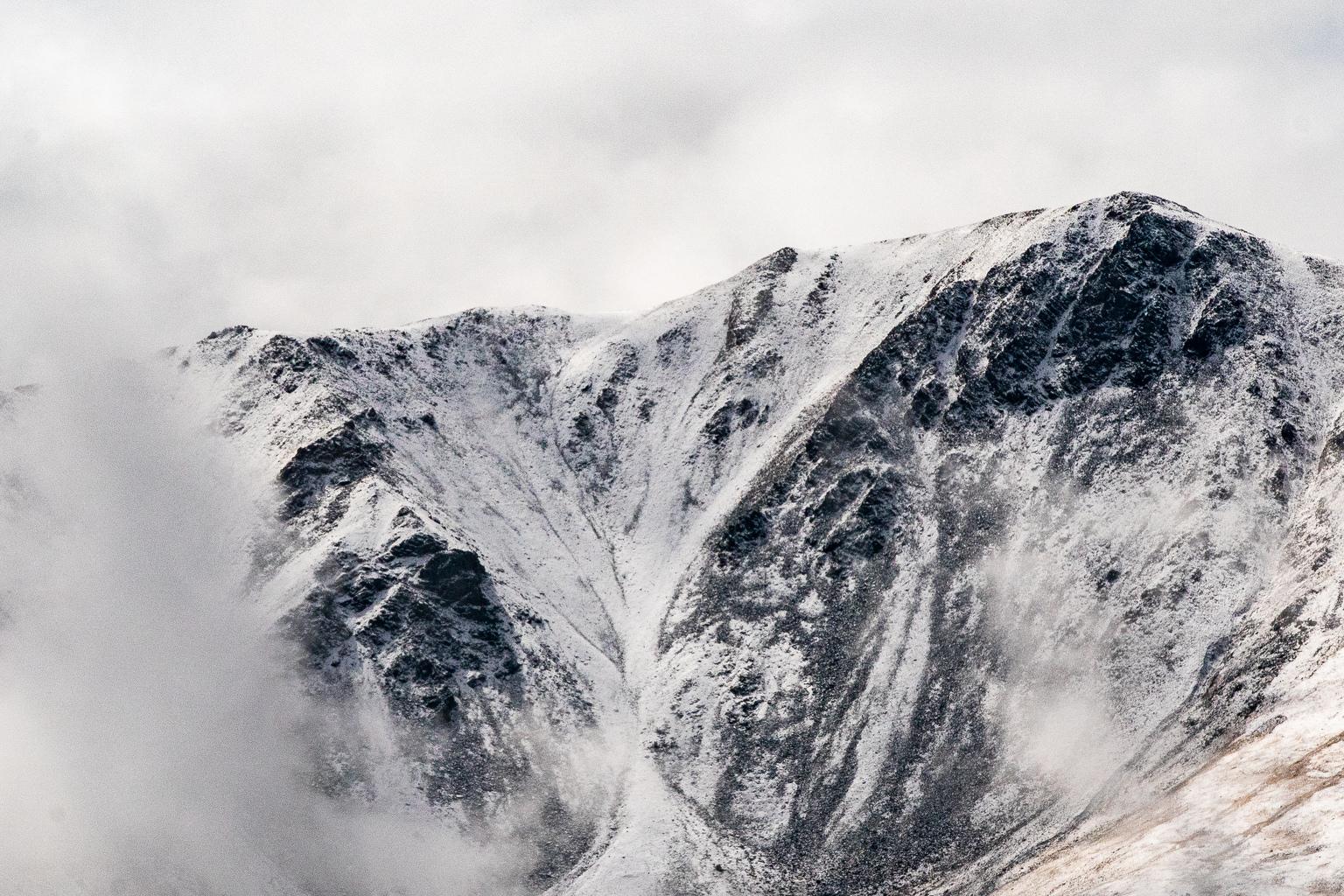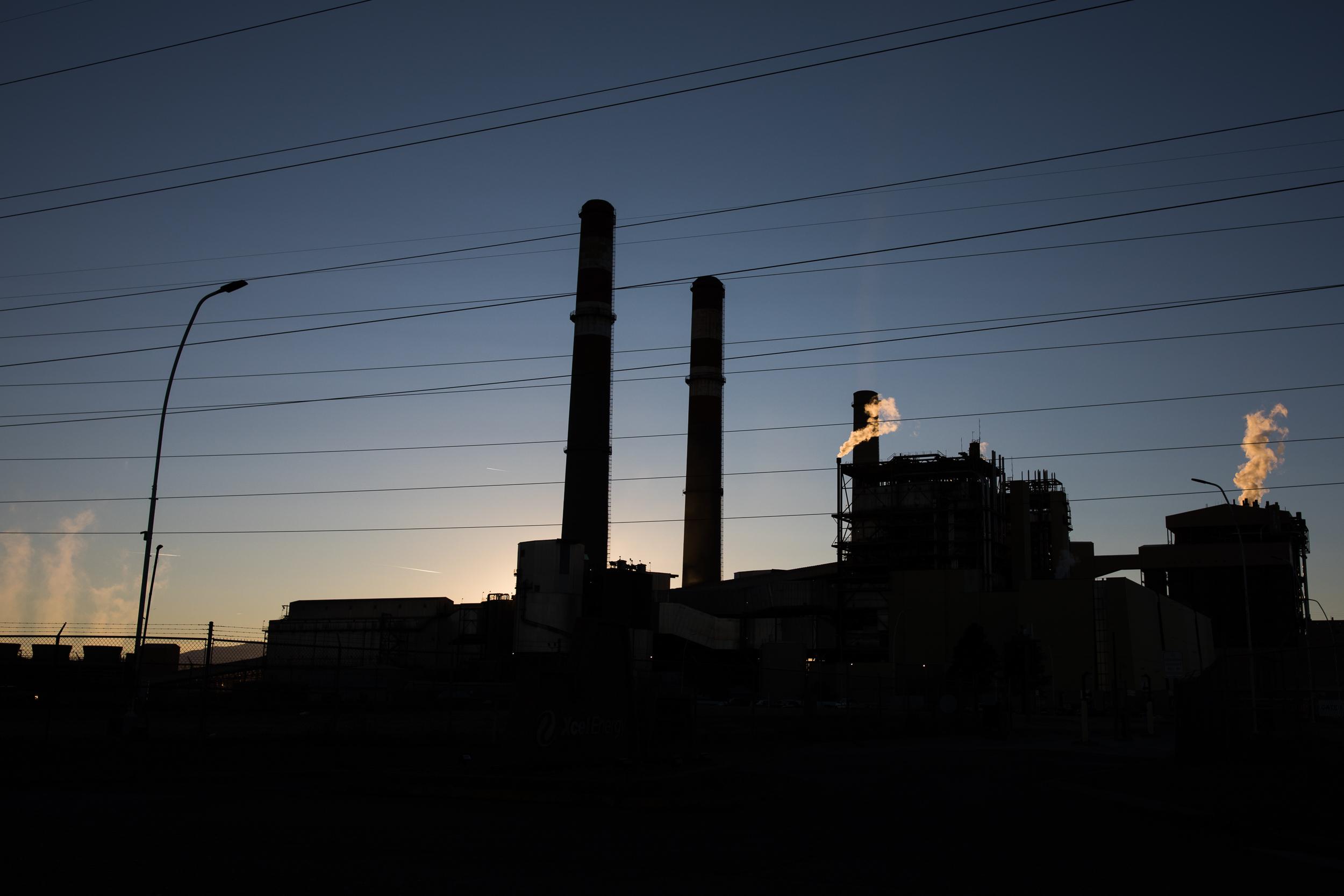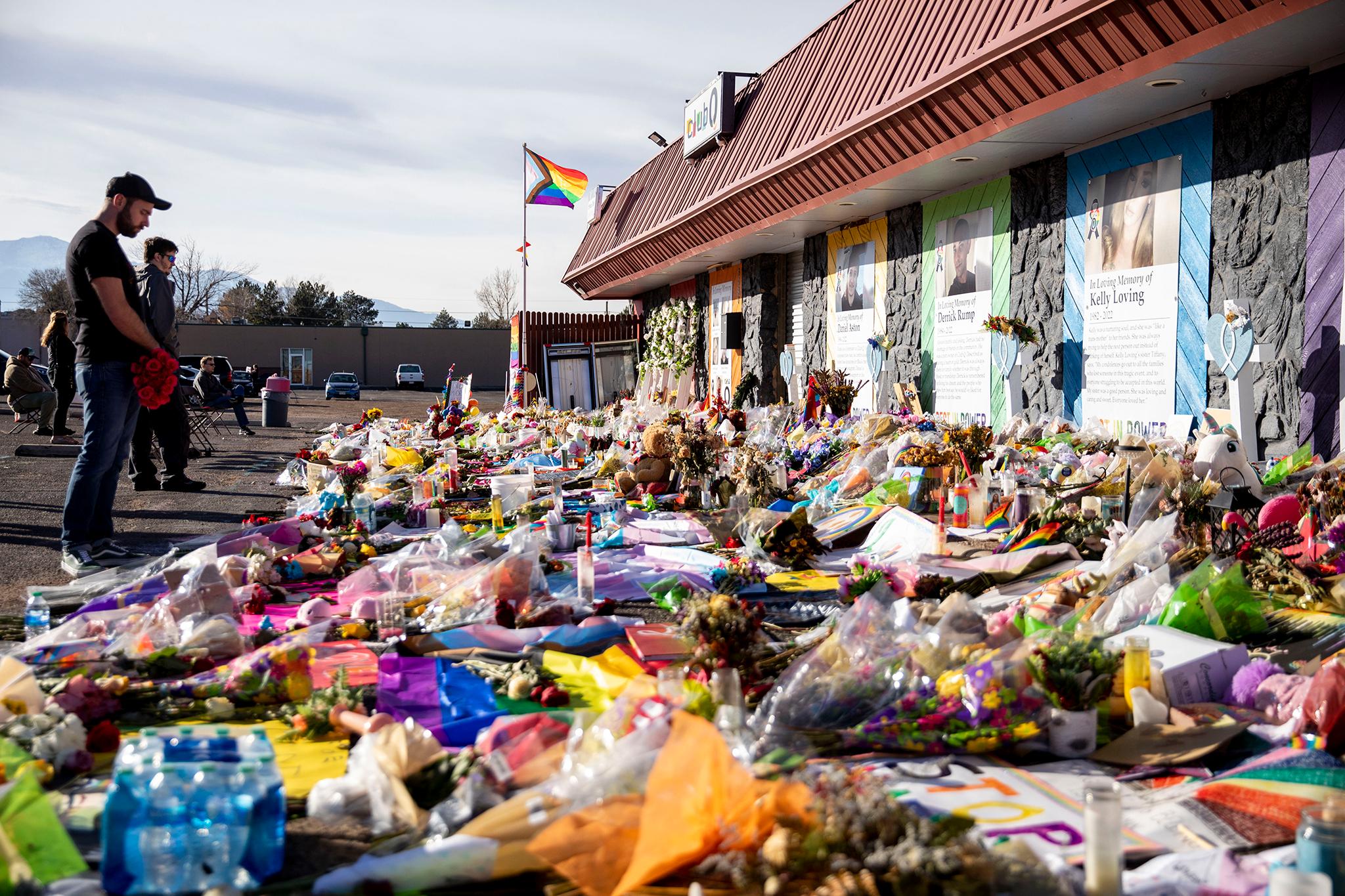
Donaciano Martinez knew who he was at very young age, but it wasn’t until the 1960s, when he was a teenager, that he found his way into Colorado Springs’ secretive gay community.
“I remember the guy who introduced me to the gay subculture, a longtime friend of mine,” he said recently over breakfast. “He told me right off at the beginning, ‘These are the rules when you meet guys: Don't tell him your name, your real name. Don't tell them where you live or where you go to school or where you work.’ And so, from then on, it just became integrated into our psyche. This is what you do.”
There weren’t many safe places to meet, so men would gather in Acacia Park after sunset.
Martinez called himself Manuelita, a tribute to his grandmother, and kept his true identity hidden for years, even from men he considered “lovers.” He grew up in a Chicano household that was devoutly Catholic. Colorado Springs, where he was born and raised, was a military town and deeply conservative. Keeping secrets, he said, was necessary.
Colorado Springs has changed a lot since Martinez was young. Now the second largest city in the state behind Denver, there are bars, community centers and churches created by and for LBGTQ+ residents. People are out, visible and engaged.
But for many, the recent mass shooting at Club Q is a devastating reminder of how things were just a few decades ago – and, despite important progress in that time, the work that still must be done.
The Vietnam War thrust people like Martinez into activism and enabled a growing movement to create space for LGBTQ+ people in Colorado Springs.
Martinez was primed to fight. As far back as he could remember, signs hung in local shops that read “No Mexicans or dogs allowed,” which both painted his family as animals and erased their long history in the American west.
“It was the same thing with the gay underground, the gays and lesbians. ‘You people stay in your place. Don't be out in the open. Stay out of sight, out of mind,’” he remembered.
Martinez was in his early 20s and excited by the protests against “America’s war in Vietnam.” He’d watched Chicano activists push for their own space in the city. As he canvassed and volunteered for Lyndon Johnson’s campaign, he tried to bring gay rights into the broader agenda for peace. But leaders of the anti-war movement didn’t want to go there. So, just a few months after the New York Stonewall riots in 1969, he and his friends decided to stand up by themselves.
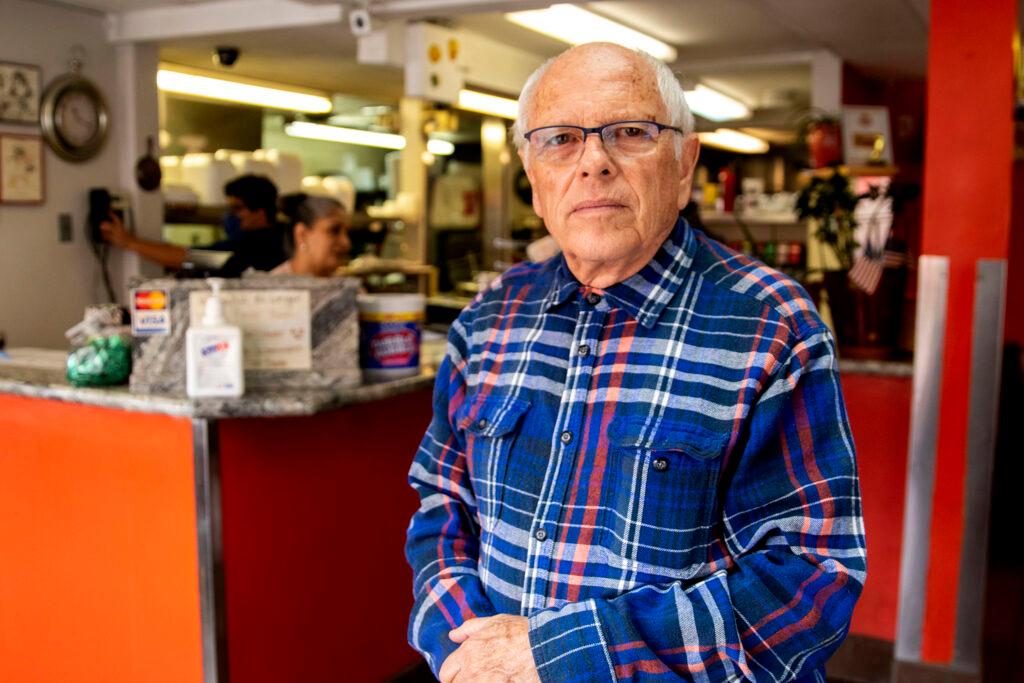
They founded Colorado Springs’ Gay Liberation Front, organizing and passing out provocative flyers, like one that read “Do you think gays are revolting?” They, at least, were attempting to revolt.
As they grew into their voices, Martinez and his friends realized they needed to use their real names. They needed to be open as they pushed for a more open community. But removing that veil meant anyone could find them.
“We got a lot of death threats. People would just look us up in an ordinary phone book, find our phone numbers and call us,” he said: “Get out of town or we're gonna kill you.”
Some gay men who were used to living in the closet also did not appreciate their efforts.
“They said that we were gonna make things worse by being open,” Martinez recalled. “‘We've been underground for so long, why can't we just leave it like this? Don't rock the boat.’”
Despite resistance, that early activism punched holes in the shroud that covered gay life in the city.
It was 1988 when Jonelle Neighbor moved to Colorado Springs. She’d fallen in love with a woman she met at a conference and picked up her life in Minnesota to be with her. She was out and at peace with herself, but when she arrived she knew she could never speak about her personal life in public.
“Absolutely not,” she said. “It was a very closeted, self-contained lesbian community that I was a part of.”
The city had opened up a bit by then. There were a few bars that catered to lesbians, specifically, but they were in basements with entrances in back alleyways.
“There was great rejoicing when a bar opened and we could go out and schmooze with our friends, have a good time,” Neighbor remembered. “There was excitement, but it wasn't a revelation for me. It was the way things should be. ... This is the freedom we should have.”
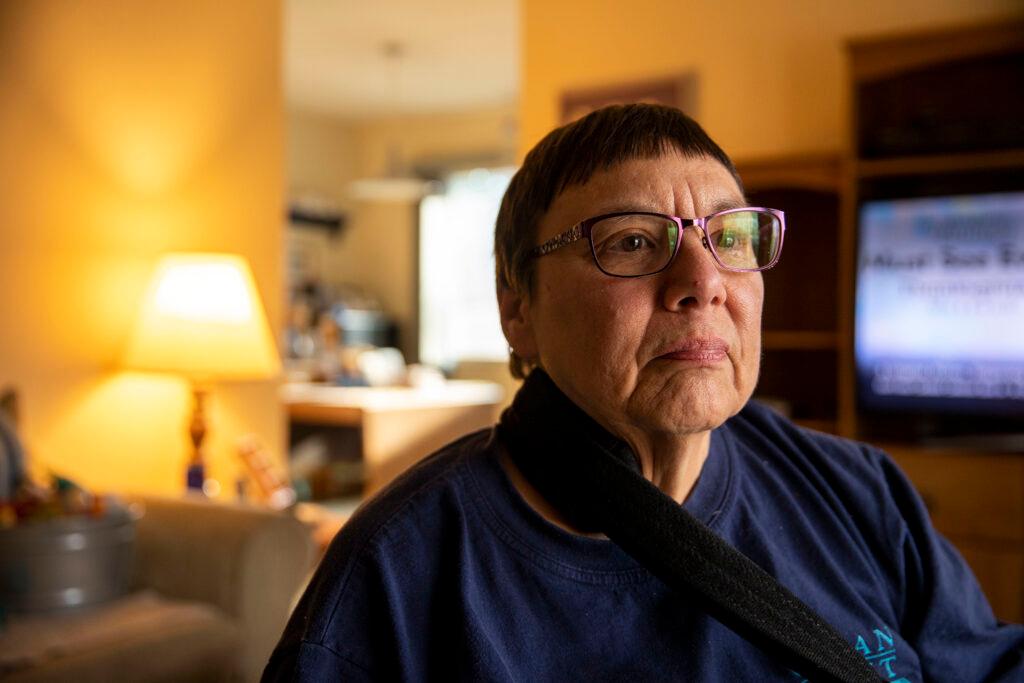
Though groups like the Gay Liberaton Front allowed Colorado Springs’ LGBTQ+ community to grow more publicly, it still reverberated with the fear of exposure. That concern was not misplaced.
In the leadup to Colorado’s 1992 election, evangelical groups gathered support and passed Amendment 2, which allowed businesses and landlords in the state to discriminate against people based on their sexuality. Though the U.S. Supreme Court would strike it down in 1996, the amendment and the culmination of anti-gay rhetoric created a new era of fear. People left Colorado. It became known as a “hate state.”
As a school psychologist, Neighbor was in a particularly compromising situation. She worried parents might turn on her and accuse her of impropriety when she was alone with a student.
She wanted to be active in protests, but she needed to check each item of clothing she wore to marches and rallies to make sure she wouldn’t be recognized. Once, she helped lead a protest in a yellow rain jacket with the hood up, despite generally clear skies. Others wore bags over their heads as they marched in Pride parades, fearing they could be identified, fired from their jobs and run out of town.
Things became more complicated as Focus on the Family, an evangelical group, relocated to Colorado Springs in 1991. The organization has long fought against legalizing same-sex marriage and has made it clear they see the growth of LBGTQ culture as a threat to traditional family units.
“At one point, we heard that Focus on the Family was cross-referencing the [school] district directory to try to see if single individuals were living with each other, cross-referencing addresses,” she remembered. “It was horrible. And it just gave you an edge to go to work. I was just anxious so much of that time.”
Sable Gordon is queen of the United Court of the Pikes Peak Empire, an offshoot of a national group founded to raise money during the AIDS crisis. In her offstage life, she’s known as Rick Brown.
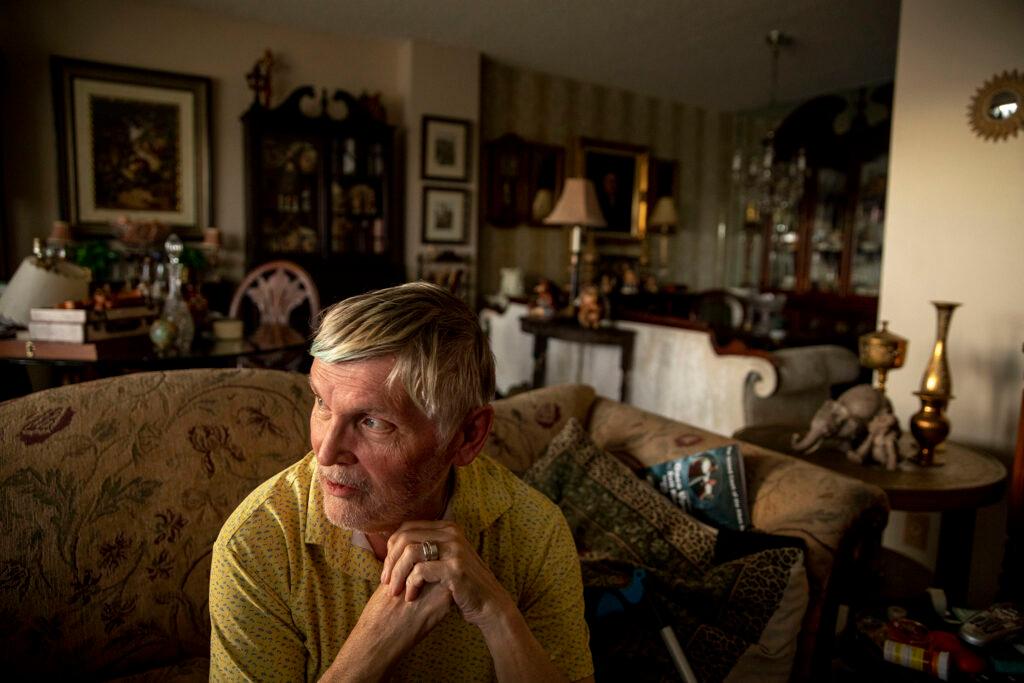
The 90s, she recalled, were dangerous. It was the first time she could remember people getting jumped outside of one of the few gay bars in Colorado Springs, the Hide and Seek. Still, she said she’d never imagine someone bringing a gun into a bar back then.
Despite new fear in the air, Gordon’s memories of the following years were of positive progress.
Bars and community hubs took root in more public places, like Club Q, which opened in the early 2000s. In 2008, the state legislature passed the Colorado Anti-Discrimination Act, which prohibited discrimination in housing, employment, schools and public benefits based on sexuality and gender identity. In 2015, a U.S. Supreme Court ruling legalized same-sex marriage for the first time; that was a huge deal for Gordon.
“I never thought I would see the day that I could actually be married legally,” she said. “I'm so grateful for that.”
But Gordon and Neighbor said a lot of the change they saw in Colorado Springs came not from the government but, instead, younger generations.
“They're stronger, and they're not afraid to come out of the closet and be who they are,” Gordon said.
Neighbor said the same: “We owe that to the young people that are coming along. They have changed the parameters.”
Ashley Cornelius, the current Pikes Peak Poet Laureate, is a member of that new generation. She’s lived through some of the city’s biggest changes, but there was a time she was sure she’d leave Colorado Springs forever.
“There wasn't a lot of spaces growing up to nurture [me]. Especially for Black and brown people, because the stigma of queerness and homophobia within BIPOC communities also adds another layer of how you can come out and what that looks like,” she said. “I grew up feeling really alone and always wanting to leave.”
But like Martinez before her, Cornelius also found new direction as she grew into her voice. Poetry and art were spaces where she thrived, and she knew there was power in speaking truth.
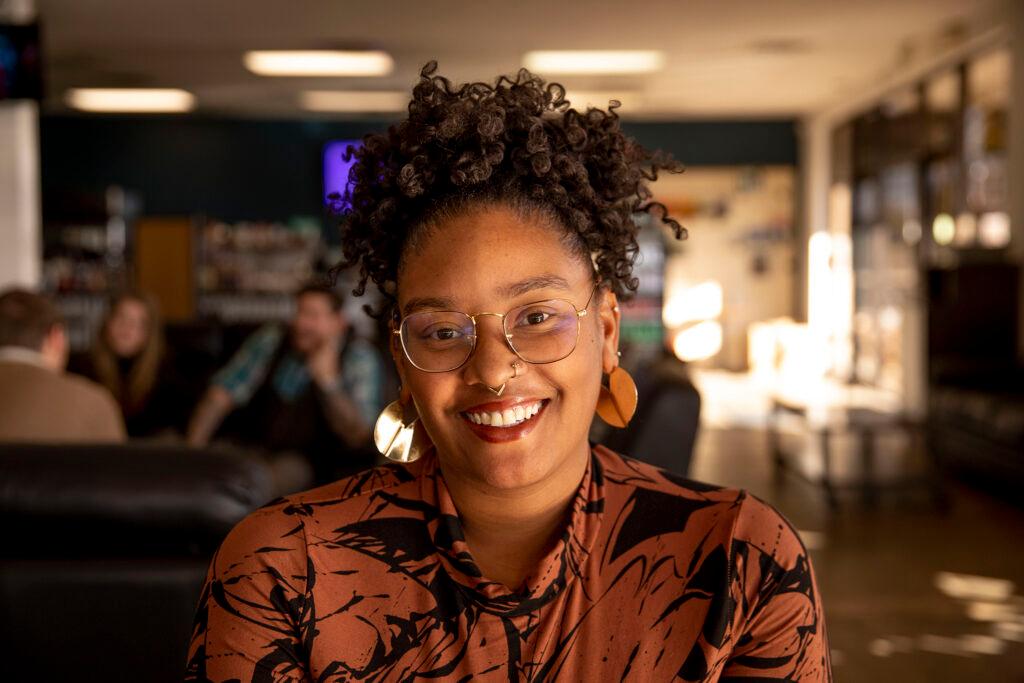
“I want to make sure that people don't feel like how I felt growing up. And I want to make sure that there's spaces for people to share their stories, that people can say, ‘Here's a leader who is Black and a woman,’” she said. “Because of those struggles, I'm committed to: ‘What can I do to shift that?’”
Poetry 719, a spoken-word community she’s helped grow in the city, is one of the things she’s poured her energy into. The inclusive group has given her and others a place to express themselves.
While Cornelius said Colorado Springs has generally moved in a positive direction in recent years, she said the city’s reputation as a hateful place is still something she experiences. Also like Martinez, she’s felt that as expressions of racism as well as homophobia.
“Yeah, our town gets a really bad rep, and I will say not for unfactual reasons. It is true, and there is a lot that happens here. But I want people to know that Colorado Springs is full of queer, beautiful people, that it is full of a BIPOC community. That there is love and joy and laughter,” she said. “Yes, there is hate that lives here, but we cannot let that hate be the loudest voice in the room.”
Liss Smith, who also grew up in Colorado Springs and now works with Inside Out, the city’s LGBTQIA2+ youth center, said it’s important to take this a step further. It would be a mistake to forget how far their community has come.
“It's very important to acknowledge our history and to use that history to contextualize the events of today,” they said. “There is an influence from the Amendment 2 days that is still in Colorado Springs. There are still people who advocated for Amendment 2 who live and have power here. There's still hate in Colorado Springs.”
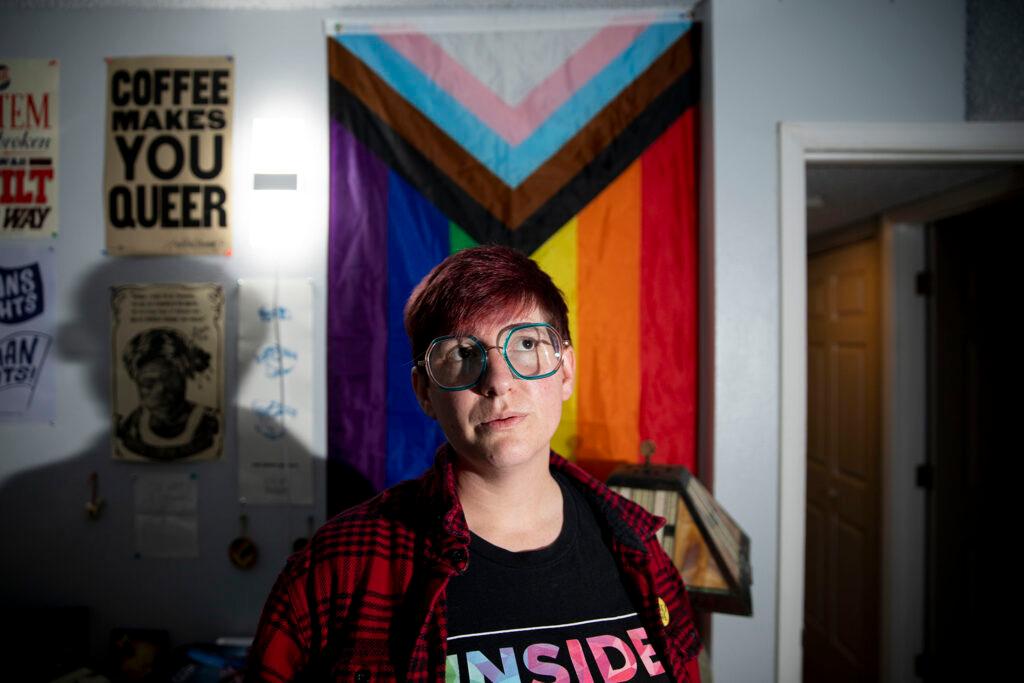
Colorado Springs police and the FBI have yet to announce a motive for the shooting that killed five and injured dozens at Club Q. Regardless, a recent study suggests Coloradans are experiencing hate crimes more often than we thought. Nationwide, the last year represented a high watermark in mass shootings and hate speech against people on the LGBTQ spectrum.
Whatever truly motivated the murders, everyone who CPR News and Denverite interviewed consider it targeted violence that stemmed from a long tradition of bigotry in the city, and one that demonstrates how progress usually isn’t on a linear trajectory.
“It's a setback. It's a horrible setback,” Neighbor said, “but, you know, this is nothing new.”
Keeping that history in mind, Smith said is crucial as their community moves forward.
“What the shooting has done is really thrown into sharp relief that we have grown so much, but our work isn't over,” they said. “We thought we had grown out of this horrible past that we had. And in so many ways we have. But we still have so much to do, and it's so important to recognize the past when we're trying to rebuild our future.”

